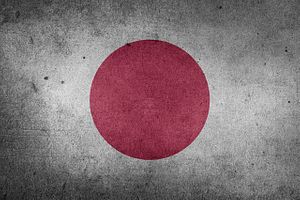On Wednesday a nonpartisan alliance of lawmakers outlined a relief package for victims of Japan’s forced sterilizations centered around “reflection” and “apology.” The package will be formally submitted in next year’s ordinary Diet session. A key breakthrough was opening compensation eligibility to those without medical documentation. With many medical records destroyed, that had proved an insurmountable barrier for many. Now victims will be able to approach the Ministry of Health assembled certification committee with testimony and a doctor’s medical assessment.
However, the well-intended proposal drew criticism for the ambiguous preamble: “We candidly reflect on ourselves and deeply apologize.” The word “we” has angered victims for its lack of clarity as to who, exactly, is taking responsibility — the government or parliament.
Japan has a long history of discriminating against the disabled. Under the now defunct Eugenics Protection Law of 1948, modelled after Nazi Germany, approximately 25,000 physically disabled and mentally handicapped men and women, including teenagers, underwent forced sterilization — some 16,000 against their will. After World War II, famine and economic hardship provided the opportunity for eugenic supporters to enforce legislation in order to “prevent the births of inferior offspring” — the idea that inferior genes should be stamped out. The damage also extended to 59,000 women who were subjected to forced abortions. The practice finally came to an end in 1996.
Currently, 13 victims across six district courts, including those in Sapporo and Sendai, have launched national liability lawsuits demanding state reparations under condition of anonymity. The National Defense Lawyers Association (NDLA) says there are many victims not wanting to raise their voice until they receive a firm apology from the government over the mistakes in national policy.
The legal framework behind the relief package fails to touch on the unconstitutionality or illegality of the former Eugenics Protection Law for taking away people’s right to have a family — rights enshrined in the constitution. Although the NDLA has urged the parliamentary alliance to provide a legal statement to relate an apology to the law’s illegality, such a statement has been intentionally avoided so as to prevent influencing the various lawsuits currently in progress.
The NDLA says the risk of failing to address the question of unconstitutionality is that there is nothing preventing history from repeating itself. They also recommend that an independent body unconnected to the Ministry of Health be established to issue damage certification to ensure greater transparency and fairness. The association points out that the Ministry of Health is responsible for neglecting the problem in the first place. Without an independent body taking the reins, the Ministry of Health’s accreditation mechanism will have a hard time obtaining trust from victims and the initiative could backfire.
In the beginning of November, a recent investigation led by the coalition working group and Ministry of Health uncovered the medical records of 1,600 sterilization patients from hospitals and clinics. Moreover the records of 3,030 people have been found among documents kept by some 27 administrative.
But a major logistical hurdle for defense lawyers is how to use the newly discovered confidential records without infringing on patient privacy — not to mention the difficulty of finding victims without an up-to-date address. Many victims chose not to reveal their traumatic surgery to their families or loved ones and some were unaware they were undergoing sterilization treatment at the time. Rather than directly notifying victims, the NDLA recommends circulating the compensation scheme to a wide cross section of society to help victims “positively inform themselves” and make the first move.
The path to compensation has reopened traumatic wounds for aging victims and time is running out to ensure victims receive reparations.
































